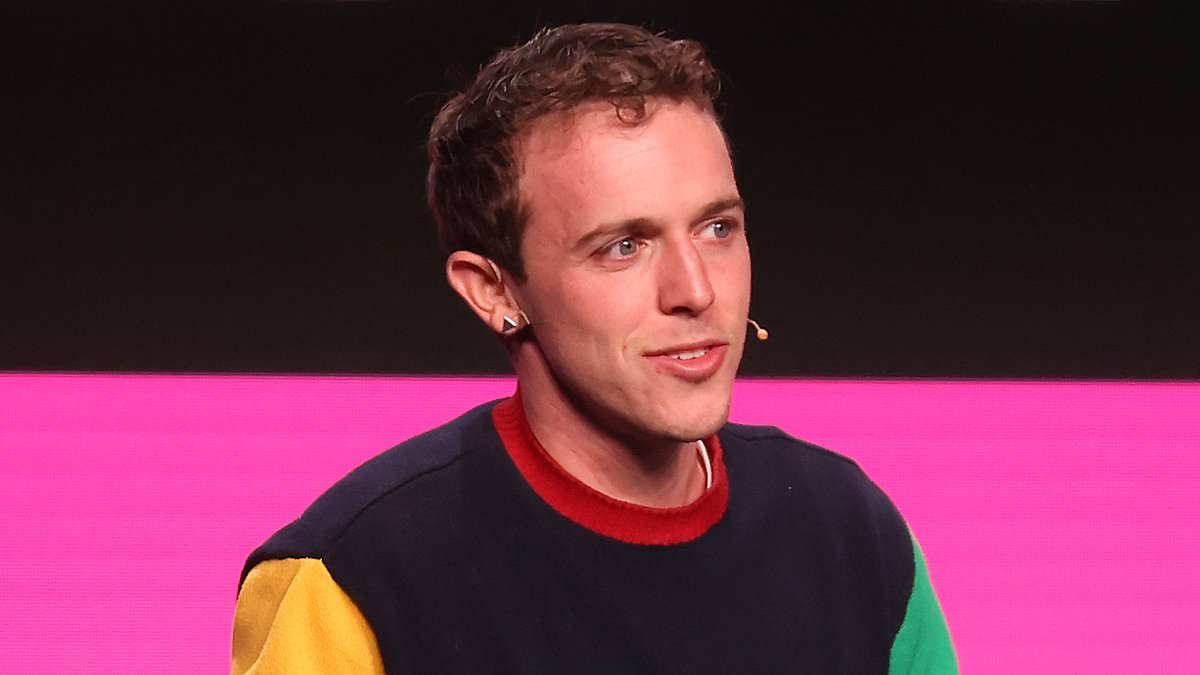A California tech CEO changed his company’s paid time off (PTO) policy after he said his laziest employees were abusing it.
Ryan Breslow, the founder of Bolt, announced on Tuesday that his San Francisco-based payment technology company would be axing unlimited PTO – a common perk in the industry.
But Breslow said the incentive wasn’t working and that his top performers were more burnt out than ever, while his laziest were enjoying too much time on the beach.
‘It sounds progressive, but it’s totally broken,’ he said of the policy in a LinkedIn post.
‘This leads to A-performer burnout. B-performer luxuries. And feelings of unfairness across the board. So we’re flipping the script.’
The new policy will allot four weeks of vacation time to every employee and each staff member will be mandated to take every single day of their PTO.
‘No more confusion,’ the 31-year-old founder, who has a net worth of $1.1billion, said.
‘If we’re asking people to move fast, build hard, and operate at the highest level, we need to protect their recovery time with the same intensity.’

Ryan Breslow, the founder of Bolt, announced on Tuesday that his San Francisco-based payment technology company would be axing unlimited PTO – a common perk in the industry

But Breslow said the policy wasn’t working and that his top performers were more burnt out than ever, while his laziest were enjoying too much time on the beach (pictured: stock image)
Employees can garner more than the 20 days the longer they’re at the company.
It is unclear if this also applies to his other company Love.com – a business that sells sustainable and green products, such as body care and coffee.
Bolt specializes in partnering with businesses, such as jewelry designer Kendra Scott, for one-click payment systems and help convert customers into subscribers.
Unlimited PTO hit corporate America in the early 2000s, with Netflix being an early adopter of the policy in 2003, according to HR Brew.
In the 2010s, it began to become more popular, with brands like LinkedIn, General Electric, and Grubhub adopting the generous policy.
By 2023, eight percent of US companies offered it.
Despite the small number of companies actually offering the perk, job posting advertising it have decreased 50 percent between 2022 and 2024, according to Revelio Labs.
Many companies have found similar findings to Breslow, with employee work-life balance actually decreasing and workers taking less time off than when they were given a set number of days.

‘It sounds progressive, but it’s totally broken,’ he said of the policy in a LinkedIn post. ‘This leads to A-performer burnout. B-performer luxuries. And feelings of unfairness across the board. So we’re flipping the script’ (pictured: stock image)
Some argue it’s due to the ambiguity of the policy.
Namely, an HR consulting company, found in 2022 that those with set PTO and unlimited took around the same amount of days per year off.
‘Unlimited PTO shifts the decision making to the workers,’ Yasemin Besen-Cassino, a Montclair State University sociologist, told Newsweek.
‘On one hand, shifting the decision-making to the workers can potentially build trust with the employees and it can also remove additional layers of bureaucracy of requesting time off,’ she continued.
‘It has the advantage to potentially provide flexibility for workers – allowing them to take time off when they need it. However, just shifting the structure alone is not enough: the culture in the workplace shapes how we apply rules and regulations.’
Besen-Cassino said high-performers who are worried taking time off will make their bosses think they’re less dedicated will hesitate to ‘take advantage’ of the generous policy.
And this isn’t the first big change Breslow has made at his company.
Last month, he announced his company would eliminate its HR department to focus more on ‘efficiency’ and less on ‘fluff.’

Unlimited PTO hit corporate America in the early 2000s, with Netflix being an early adopter of the policy in 2003. By 2019, six percent of US companies offered it. It jumped to eight percent by 2023
‘This doesn’t mean we don’t value culture, oversight, or checks and balances. In fact, the opposite,’ he wrote on LinkedIn.
‘We care deeply about these topics. However, we believe there’s a better way to do it, and one without middlemen getting in the way of our teammates and their managers.’
These changes come as Breslow, who recently rejoined the team after three years, is conducting loads of internal changes inside the start-up that, at its peak, was valued at $11billion in 2022.
The company originally made headlines in 2021 after it adopted a four-day workweek.
Since then, it has had seen layoffs, investigations, and lawsuits due to its business practices.
Breslow stepped down in 2022 after being accused of misleading investors by inflating how much the company was worth.
Daily Mail has reached out to Bolt for comment.
